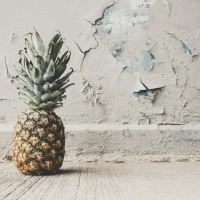As backyard chicken keepers continually seek ways to improve the health and happiness of their feathered friends, the question of whether can chickens have cauliflower frequently comes up. Whether you’re a seasoned poultry enthusiast or a newcomer to hen husbandry, understanding the dietary preferences and nutritional requirements of chickens is essential. This comprehensive guide demystifies the topic of chickens consuming cauliflower and reveals the nutritional secrets of integrating this vegetable into their diet.
Cauliflower is a vegetable that many of us enjoy for its versatility and health benefits. Yet, when it comes to our poultry pals, it is vital to discern if this human food is also a healthy choice for them. With an ever-growing interest in holistic and natural chicken diets, let’s delve into the nutritional benefits and potential risks of feeding cauliflower to chickens.
Understanding Chickens’ Dietary Needs
Before we explore the specifics of feeding cauliflower to chickens, it’s important to understand the basic dietary requirements of these birds.
Macronutrients for Chickens
Chickens need a balanced diet comprising proteins, carbohydrates, and fats to maintain optimal health. Protein is crucial for growth, feather production, and egg laying, while carbohydrates act as the primary energy source. Fats are necessary but required in smaller amounts than the other macronutrients.
Protein: Cornerstone of Growth
The protein intake for chickens should be around 16-18% of their diet, which they typically receive from commercial feeds, insects, and meat scraps.
Carbohydrates: Energy Providers
Carbohydrates, found in grains and greens, should constitute the bulk of a chicken’s diet.
Fats: Necessary in Moderation
Chickens should consume fats in moderation, as excess can lead to obesity and other health issues.
Micronutrients for Balance
Vitamins and minerals are equally important, though needed in smaller quantities. These micronutrients support bone health, metabolism, and the immune system.
Essential Vitamins
Vitamins A, D, E, and K, along with the B-complex vitamins, are critical for chickens.
Minerals for Body Functions
Calcium, phosphorus, magnesium, and other trace minerals should be consistently present in a chicken’s diet, especially for laying hens.
Cauliflower: A Nutritional Powerhouse?
Cauliflower is not just a filler food; it is packed with nutritional benefits that can be advantageous for chickens when offered in moderation.
Rich in Vitamins and Minerals
Cauliflower is a source of vitamin C, K, B6, and folate, as well as minerals like potassium and manganese. These can boost a chicken’s nutrition when added to a well-rounded diet.
A Low-Calorie Option
As a low-calorie vegetable, cauliflower can be a healthy snack alternative to higher-calorie table scraps.
Antioxidants Abound
It’s also rich in antioxidants, which help combat oxidative stress in chickens, much like they do in humans.
Fiber for Digestive Health
The dietary fiber in cauliflower can aid in digestion for chickens, promoting gut health and bowel regularity.
Can Chickens Have Cauliflower: The Verdict
When it comes to incorporating vegetables into your flock’s diet, it’s imperative to introduce new foods slowly and observe for any adverse reactions. So, can chickens eat cauliflower? The answer is yes, chickens can safely consume cauliflower, but let’s break down this verdict with important considerations.
Moderation is Key
Feeding your chickens cauliflower, as part of a varied diet, is beneficial as long as it’s done in moderation. Overfeeding any single food item can disrupt nutritional balance.
Portion Control
A few florets of cauliflower as an occasional treat is generally safe for chickens.
Preparation Matters
How you prepare cauliflower for your chickens can make a difference to their health and enjoyment.
Raw or Cooked Cauliflower
Chickens can eat both raw and cooked cauliflower. However, it’s essential to ensure that cooked cauliflower is free from added seasonings or oils which can be harmful.
Chop for Easy Consumption
Cauliflower should be chopped into bite-sized pieces to prevent choking and to make it easy for chickens to eat.
Introduce Gradually
An abrupt change in diet can cause digestive upset in chickens. Introduce cauliflower gradually and watch for any changes in their droppings or behavior.
Common Concerns When Feeding Cauliflower to Chickens
While cauliflower is a nutritious vegetable for chickens, there are a few common concerns to contemplate.
Gas and Bloating
Cauliflower can cause gas and bloating in chickens, just as in humans. Keep portions small to avoid discomfort.
Risk of Impaction
Large pieces of cauliflower can lead to impaction, a blockage in the chicken’s digestive tract. Always serve cauliflower in small, bite-sized pieces.
Balancing the Diet
Ensuring that cauliflower does not replace essential feed is vital for maintaining a balanced diet.
Don’t Overdo the Good Thing
Too much cauliflower can lead to nutritional imbalances, particularly if it displaces other critical diet components.
Creative Ways to Feed Cauliflower to Chickens
Feeding cauliflower to chickens can be more than just tossing a few florets into their pen. Here are some creative ways to incorporate this vegetable into your chickens’ diet:
Mix with Other Treats
Combine small pieces of cauliflower with other chicken-friendly vegetables and fruits to create a varied snack mix.
Make a Veggie Scatter
Scatter a mix of chopped cauliflower, leafy greens, and berries around the coop for a fun foraging activity.
Use as a Supplement
Occasional cauliflower treats can supplement their commercial diet, rather than acting as a primary food source.
Debunking Myths About Chickens and Cauliflower
As with many discussions surrounding chicken diets, misconceptions can arise. Let’s set the record straight.
Myth: Cauliflower is Harmful to Chickens
Cauliflower is not inherently harmful to chickens if offered appropriately and in moderation.
Fact-Check
The belief that cauliflower is toxic to chickens is unfounded. However, any new food should be introduced cautiously.
Myth: Chickens Won’t Eat Cauliflower
Some chicken keepers believe their birds won’t enjoy or eat cauliflower. However, this can greatly depend on individual preferences.
Reality
Each chicken has its own taste preferences, much like humans. Some will relish cauliflower, while others may be indifferent.
Conclusion: Healthy Hens Enjoy Cauliflower Safely
To surmise, cauliflower can be a healthy, nutritious supplement to your chickens’ diet when fed properly. Key points to remember include:
- Moderation is vital in preventing any gastrointestinal issues.
- Cauliflower provides several health benefits and can be a tasty treat.
- Always introduce new foods gradually and in small quantities.
By following these guidelines, your feathered friends can enjoy the nutritional benefits of cauliflower without compromising their well-being. With thoughtful incorporation into their diet, cauliflower can contribute to a happier, healthier flock.
We hope this article has helped to clarify can chickens have cauliflower, and provided valuable insights into the ways in which this veggie can be included in their feeding regimen. Let’s keep our chickens clucking contentedly with diverse, balanced, and nutrient-rich diets!










